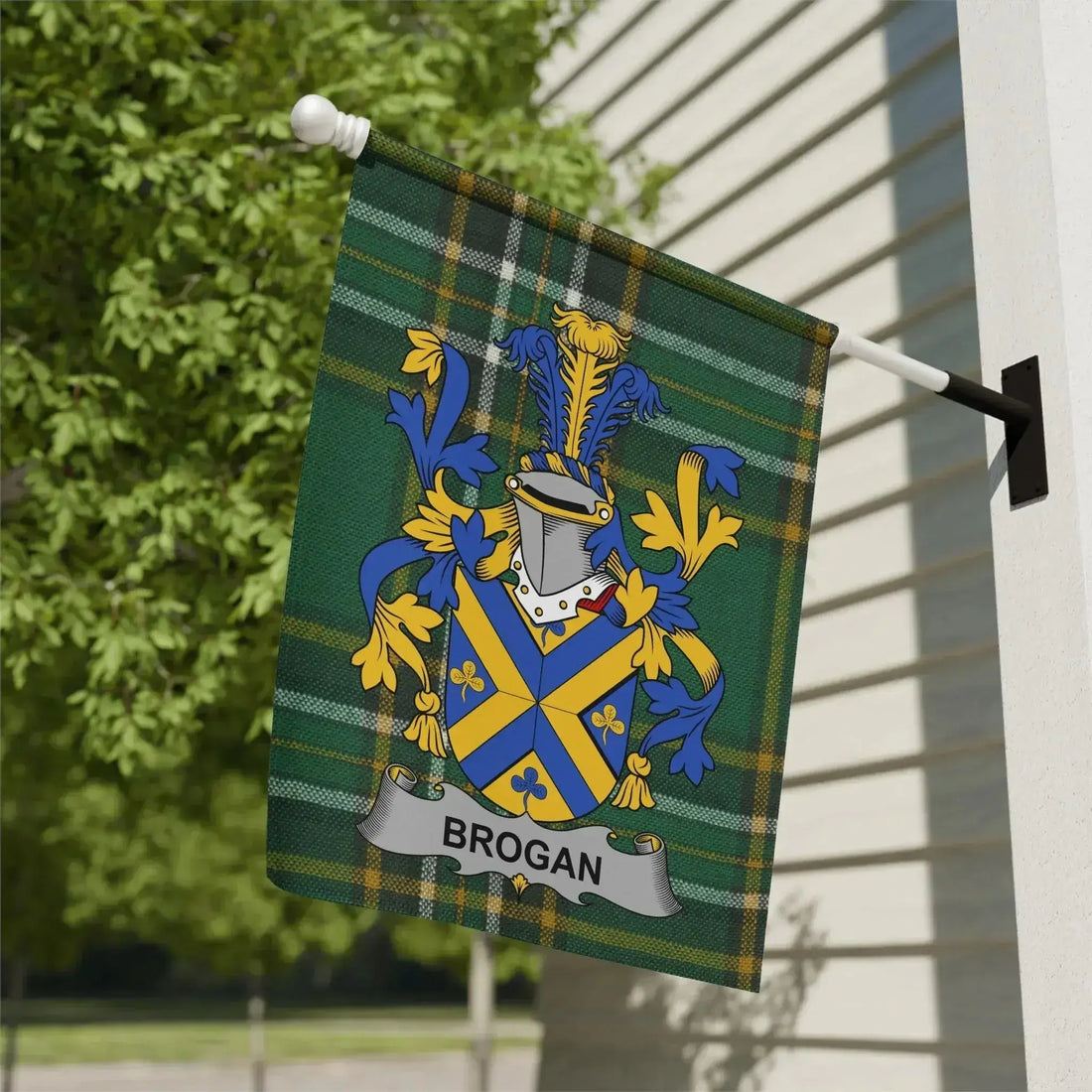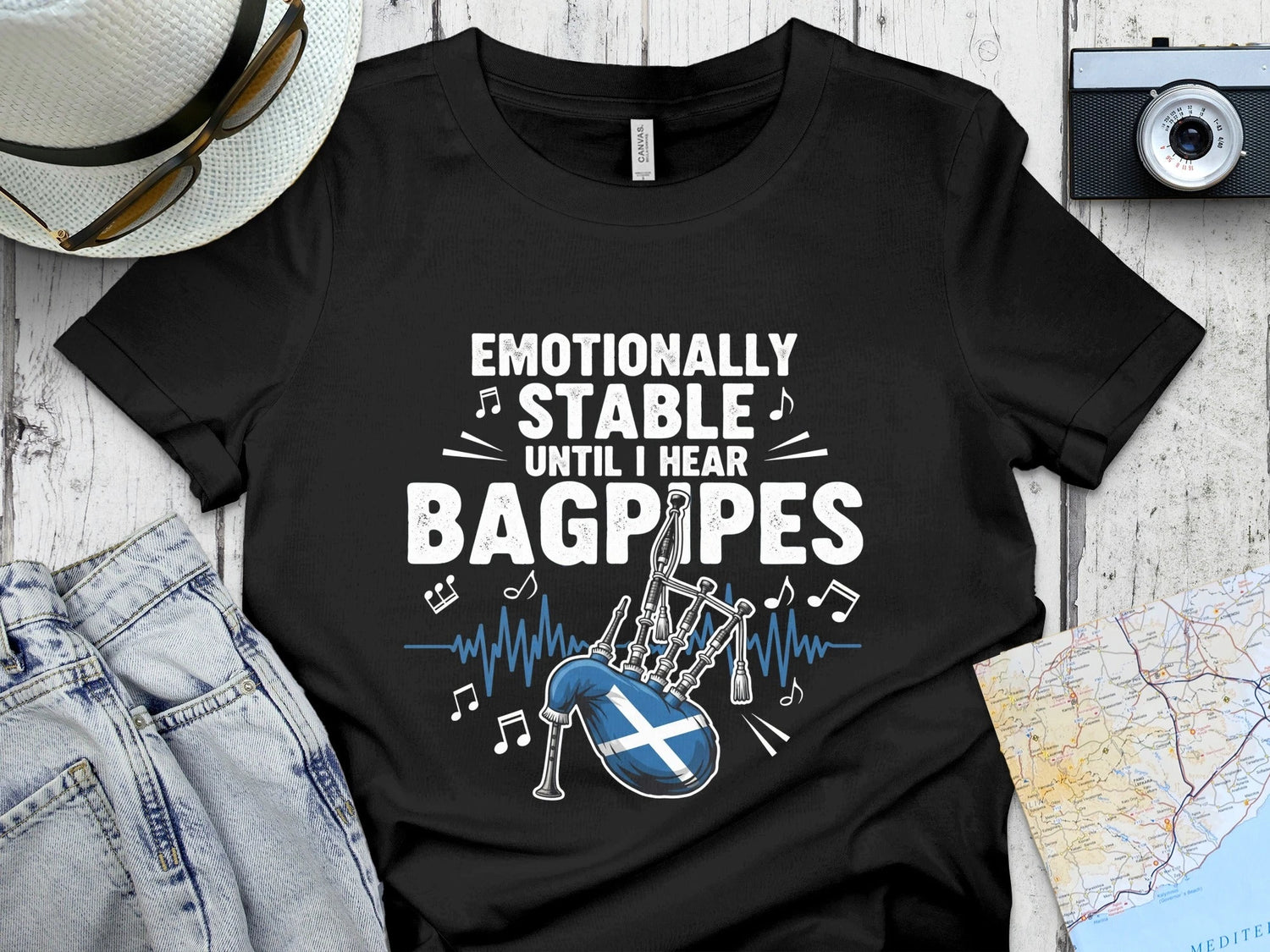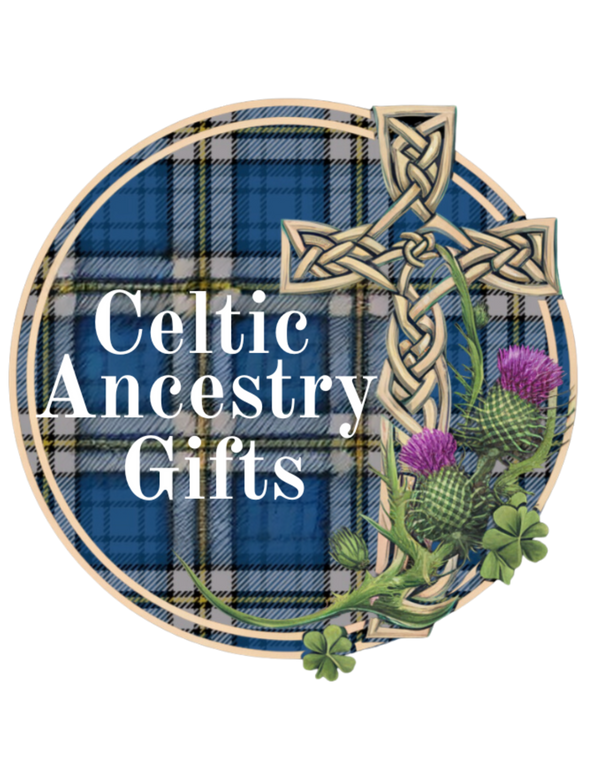
The Brogan Surname: Heirs of Faith, Strength, and Irish Soul
Share
1️⃣ Introduction: Pride in a Name Rooted in Ancient Ireland
To bear the name Brogan is to carry a piece of Ireland’s sacred and heroic past — a name of devotion, courage, and steadfastness. In Irish, it is Ó Brógáin or Mac Brógáin, meaning “descendant of Brógán” or “son of Brógán.”
The name reaches back to the early centuries of Christianity in Ireland and is linked to one of the most beloved figures of the Celtic Church — St. Brogan (Broccán or Brógán), a disciple and nephew of St. Patrick. His name, meaning “little shoe” or “sturdy one,” came to symbolize humility and service — small in stature, yet mighty in spirit.
From those early days, the Brogans spread across Ireland, from Donegal and Mayo in the west to Offaly and Meath in the midlands, always known for faith, hard work, and quiet strength.
2️⃣ History & Origins: From Saintly Beginnings to Gaelic Chiefs
Saint Brogan and the Early Roots
The story of the Brogan name begins in the 5th century, when St. Brogan (Broccán Clóen) lived as a monk and scribe under St. Patrick’s guidance. He is remembered as one of the early poets of Christian Ireland and the author of the Hymn to St. Brigid, a lyrical tribute to Ireland’s female patron saint.
His name, Brógán, derives from the Gaelic bróg, meaning “shoe” — a symbol of the pilgrim’s path and spiritual journey. Those who later bore his name likely descended from or honored followers of his lineage and faith.
The Gaelic Brogans of Connacht and Ulster
By the medieval period, the Brogans had become a recognized Gaelic family with several distinct branches. The main septs were found in Counties Donegal, Mayo, Roscommon, and Offaly, though the name was widespread throughout Ireland.
-
In Donegal, the Ó Brógáin family were part of the Cenél Conaill, the same royal kin-group that produced the O’Donnells.
-
In Mayo and Roscommon, the Mac Brógáin family were small chiefs and hereditary landholders under the O’Conors of Connacht.
-
In Offaly and Meath, Brogans were known as loyal followers of the O’Melaghlins and O’Carrolls, serving as craftsmen, scholars, and churchmen.
Over time, the name became common throughout Ireland, as Gaelic families spread and adapted to the changing tides of history.
Faith and Perseverance in Hard Times
The Brogans, like many Gaelic Irish families, suffered under the waves of invasion and colonization — from the Normans to the Cromwellian campaigns. Yet, they endured.
Parish records from the 17th and 18th centuries show Brogans among the steadfast Catholic families who maintained their faith under persecution. Many became farmers, tradesmen, and priests — pillars of the Irish countryside. Their reputation for reliability and piety was strong enough that the name became synonymous with trust and humility.
3️⃣ Spelling Variations & Connections to Other Names
The simplicity of the Brogan name belies its long history and regional diversity. Over centuries, the spelling and pronunciation have shifted across dialects and borders.
Variants: Brogan, Brogin, Broginne, Broghan, Brogon, O’Brogan, McBrogan
Gaelic Forms: Ó Brógáin (descendant of Brógán), Mac Brógáin (son of Brógán)
Anglicized Forms: Brogan, Broghan, Brogon
Related Names: Broggan, Broggin (less common modern variants)
Associated Clans: In the north, the Brogans were historically linked to the O’Donnells; in the west, to the O’Conors of Connacht.
The name has remained remarkably true to its Gaelic roots — an enduring badge of Irishness and devotion.
4️⃣ Landmarks & Regions Associated with the Brogan Name
County Donegal – The stronghold of the northern Ó Brógáin family, who held lands near Gweedore and along the River Finn. This region’s rugged landscape mirrors the steadfast character of its people.
County Mayo and Roscommon – The heartland of the Connacht Brogans, where generations of Mac Brógáin served as farmers, churchmen, and poets. Many townlands still bear echoes of the name.
County Offaly and Meath – Home to early monastic settlements connected with St. Brogan’s legacy. Churches dedicated to early saints in these areas preserve the spiritual thread that binds the name to Ireland’s Christian roots.
County Fermanagh and Tyrone – Later records show Brogan families moving northward during the 17th century, joining communities along the Erne Valley and Lough Neagh.
Together, these lands form a trail of Irish endurance — from the faith of the early monks to the families who tilled the soil centuries later.
5️⃣ Migration & Modern-Day Presence
As with many Irish families, the 18th and 19th centuries brought emigration for the Brogans. The Great Famine scattered their descendants to North America, Australia, and the British Isles.
In the United States, the Brogan name became particularly established in New York, Boston, and Philadelphia, where Irish immigrants found community and opportunity. In Canada, many settled in Ontario and Nova Scotia, often maintaining their faith and Gaelic pride.
Today, the name Brogan remains strong in Ireland, especially in Connacht and Ulster, and thrives across the Irish diaspora. It is a name that speaks softly yet carries great weight — a symbol of humility, hard work, and spiritual endurance.
The family motto, “Robur Meum Deus” — “God is my Strength” — captures the essence of Brogan character: quiet resilience under the guidance of faith.
6️⃣ Fun Fact
In Irish legend, St. Brogan is said to have helped preserve the teachings of St. Patrick and composed one of Ireland’s earliest hymns. His feast day, September 17th, is still celebrated in parts of Ireland.
Another tradition says that early Brogans were skilled shoemakers — fitting for a name meaning “little shoe” — and that their craftsmanship became known from Donegal to Dublin. To this day, the name carries connotations of steadiness, purpose, and grounded strength.
💚 Search your family name in the search bar above to explore your clan gifts.
Celebrate your Brogan heritage with beautifully crafted mugs, t-shirts, blankets, ornaments, wall art, phone cases, magnets, flags, and more, all featuring your Irish crest and Gaelic name.

